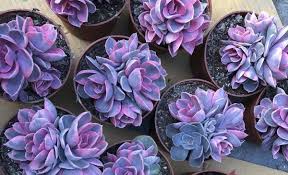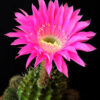Creating a Green Living Space in Feng Shui to Maintain Harmony

In recent years, the idea of living in harmony with nature has gained increasing importance, not just for the environment but also for our well-being. Feng Shui, the ancient Chinese practice of arranging spaces to promote positive energy flow, emphasizes the importance of balance, harmony, and the natural world. One of the most effective ways to create such harmony is by designing a green living space that incorporates elements of nature. By following Feng Shui principles, you can transform your home into a sanctuary that nurtures both your body and mind.
This article will explore how to create a green living space according to Feng Shui, focusing on the significance of plants, natural materials, air quality, and outdoor integration to achieve a harmonious and balanced environment. Incorporating these elements into your home can improve your health, boost your energy, and create a peaceful atmosphere that encourages productivity and well-being.
1. The Importance of Green Spaces in Feng Shui
Feng Shui revolves around the concept of Chi, or life force energy, that flows through the environment. In a balanced space, Chi is free-flowing and nourishing, positively affecting our mental, physical, and emotional states. One of the main principles of Feng Shui is the importance of creating an environment that enhances the flow of Chi, and this is where the concept of “green living” comes into play.
In Feng Shui, the presence of plants and natural elements symbolizes growth, vitality, and healing. Incorporating greenery into your home creates an atmosphere that supports positive Chi, promoting a sense of calm, creativity, and prosperity. Plants help cleanse the air, reduce stress, and improve overall health. By integrating these natural elements into your living space, you foster an environment that nurtures balance, creativity, and well-being.
2. Choosing the Right Plants for Feng Shui
The selection of plants is a critical aspect when creating a green living space. Each plant carries specific energy and attributes that can enhance or disrupt the energy flow of your home. In Feng Shui, it is important to choose plants that promote harmony and balance.
The Power of Healthy Plants
In Feng Shui, healthy plants represent vitality, abundance, and life. Dead or dying plants can have the opposite effect, symbolizing stagnation and negativity. Therefore, it is essential to maintain your plants in good condition. Ensure they are well-watered, pruned, and placed in areas where they can thrive. A healthy, vibrant plant can bring a positive and uplifting energy to any space.
Types of Plants with Positive Feng Shui Energy
- Bamboo: Bamboo is considered one of the best plants in Feng Shui because it represents strength, growth, and good fortune. The plant is associated with the Wood element, which nurtures prosperity and success. It’s also considered a symbol of flexibility and resilience, helping to create a harmonious flow of energy.
- Money Plant (Pothos): Also known as the “Golden Pothos,” the money plant is associated with wealth and prosperity. It is believed to attract positive energy and good fortune into the home. The plant is also a symbol of vitality and growth, making it ideal for a green Feng Shui environment.
- Snake Plant (Sansevieria): The snake plant is an excellent air purifier and is associated with the Water element in Feng Shui. Its upright, sword-like leaves represent protection and resilience, making it a powerful plant to have in your home. It also symbolizes the balancing of Yin and Yang energy.
- Peace Lily: The peace lily is known for its ability to purify the air and is associated with the Water element in Feng Shui. It symbolizes peace, tranquility, and harmony, making it ideal for bedrooms or meditation spaces where relaxation is important.
- Jade Plant: The jade plant is another powerful symbol of prosperity and abundance in Feng Shui. Known as the “money tree,” it is said to bring wealth and good fortune to the home. Its thick, glossy leaves represent financial stability and growth.
Where to Place Your Plants
In Feng Shui, placement is just as important as the type of plant. Here are a few tips for positioning your plants:
- Wealth and Abundance: Place plants in the southeast corner of your home to enhance prosperity. The southeast area is associated with the Wood element and is considered the wealth corner in Feng Shui. This is an ideal spot for plants like bamboo and the money plant.
- Health and Vitality: The center of your home, known as the “Health and Center” area, benefits from plants that promote vitality and well-being. A well-placed plant in this area can boost the overall energy of your home and promote family harmony.
- Productivity and Creativity: For enhancing productivity and creativity, consider placing plants in the east or southeast areas of your home. Plants like the snake plant or peace lily can help boost creativity and maintain focus.
3. Incorporating Natural Materials
Beyond plants, using natural materials in your home is another important aspect of creating a harmonious Feng Shui environment. Wood, stone, clay, and other natural elements help bring the energy of nature into your living space.
Wood: The Element of Growth and Vitality
Wood is an essential element in Feng Shui, symbolizing growth, vitality, and abundance. Incorporating wood materials into your home’s design can enhance the energy flow and bring a sense of life and movement. You can integrate wood through furniture, flooring, or decorative elements like wooden frames or shelving.
Stone: Grounding and Stability
Stone and rock materials are associated with the Earth element in Feng Shui. Using natural stone in your home, such as in countertops, flooring, or decorative features, helps create a sense of grounding and stability. Earth tones like browns, beiges, and soft yellows are calming and supportive, encouraging a feeling of security and connection to the earth.
Clay: Natural and Soothing
Clay and ceramics are also used in Feng Shui to promote balance and stability. These materials are grounding and can help to create a warm, inviting atmosphere. Clay pottery, vases, and bowls filled with plants or decorative stones are excellent ways to integrate this element into your home.
Combining Natural Materials
When creating a green living space, it’s important to combine these natural elements to achieve balance. For example, pairing wooden furniture with stone accessories or using clay planters for your plants can enhance the flow of energy and create a harmonious, grounded environment.
4. Air Quality and Ventilation
A key component of a healthy living space is good air quality. Poor air circulation can lead to stagnation and negative energy buildup, while fresh, clean air promotes the free flow of Chi throughout the home.
The Role of Plants in Purifying the Air
In Feng Shui, plants are known to improve the quality of the air by absorbing carbon dioxide and releasing oxygen. Some plants, like the spider plant and peace lily, are particularly effective at filtering indoor air pollutants, making them ideal for improving the overall energy of your home.
To maximize air quality and Chi flow, make sure your home is well-ventilated. Open windows regularly to allow fresh air to circulate and reduce the buildup of stale energy. In areas where natural ventilation is limited, consider using air purifiers in conjunction with plants to enhance air quality.
The Importance of Clean and Fresh Air
In addition to plants, keeping the air clean and fresh is essential for maintaining a healthy, balanced living space. Use essential oils, incense, or air purifiers to refresh the air and keep the energy flowing smoothly. Smudging with sage or palo santo can also be an effective way to clear stagnant energy and bring in new, vibrant Chi.
5. Integrating Outdoor Spaces
Feng Shui encourages the integration of nature into your living space, and one of the best ways to do this is by creating an outdoor area that complements your indoor space. Balancing the energy between your home and the outdoors is essential for maintaining harmony.
Creating a Tranquil Outdoor Space
An outdoor garden, patio, or balcony can act as an extension of your living space. Adding plants, water features, and natural seating arrangements can help create a tranquil, peaceful environment. Feng Shui emphasizes the importance of water as an element that supports prosperity and flow. Consider adding a small fountain or pond to your outdoor space to further enhance the flow of Chi.
Connecting with Nature
Spending time outdoors, especially in areas where nature is abundant, has been shown to improve mental clarity and reduce stress. If possible, design your outdoor space to maximize your connection with nature. Whether it’s a small garden or a larger landscape, surrounding yourself with greenery, flowers, and natural elements can help maintain harmony between your indoor and outdoor spaces.
6. Creating a Harmonious and Balanced Feng Shui Green Living Space
When creating a green living space according to Feng Shui, it’s important to focus on balance. Harmony is the key to maintaining a positive and vibrant energy in your home. By incorporating natural elements, plants, natural materials, and maintaining good air quality, you can create an environment that promotes physical, mental, and emotional well-being.
Here are some final tips for achieving a balanced green living space:
- Keep your home clutter-free: Feng Shui emphasizes the importance of a clean and organized environment to allow the free flow of Chi.
- Balance the five elements: In addition to plants and natural materials, be sure to incorporate the five elements (Wood, Fire, Earth, Metal, and Water) into your design to achieve overall harmony.
- Use colors wisely: Colors play an important role in Feng Shui, and incorporating green shades into your space can help amplify the energy of growth, vitality, and harmony.
Conclusion
Creating a green living space in Feng Shui is about more than just adding plants to your home. It’s about harmonizing the flow of energy with nature’s elements to foster peace, abundance, and health. By carefully selecting plants, incorporating natural materials, improving air quality, and connecting your indoor and outdoor spaces, you can create a living environment that nurtures and supports you in all aspects of life. Embrace the principles of Feng Shui, and transform your home into a sanctuary of balance, vitality, and positive energy.

